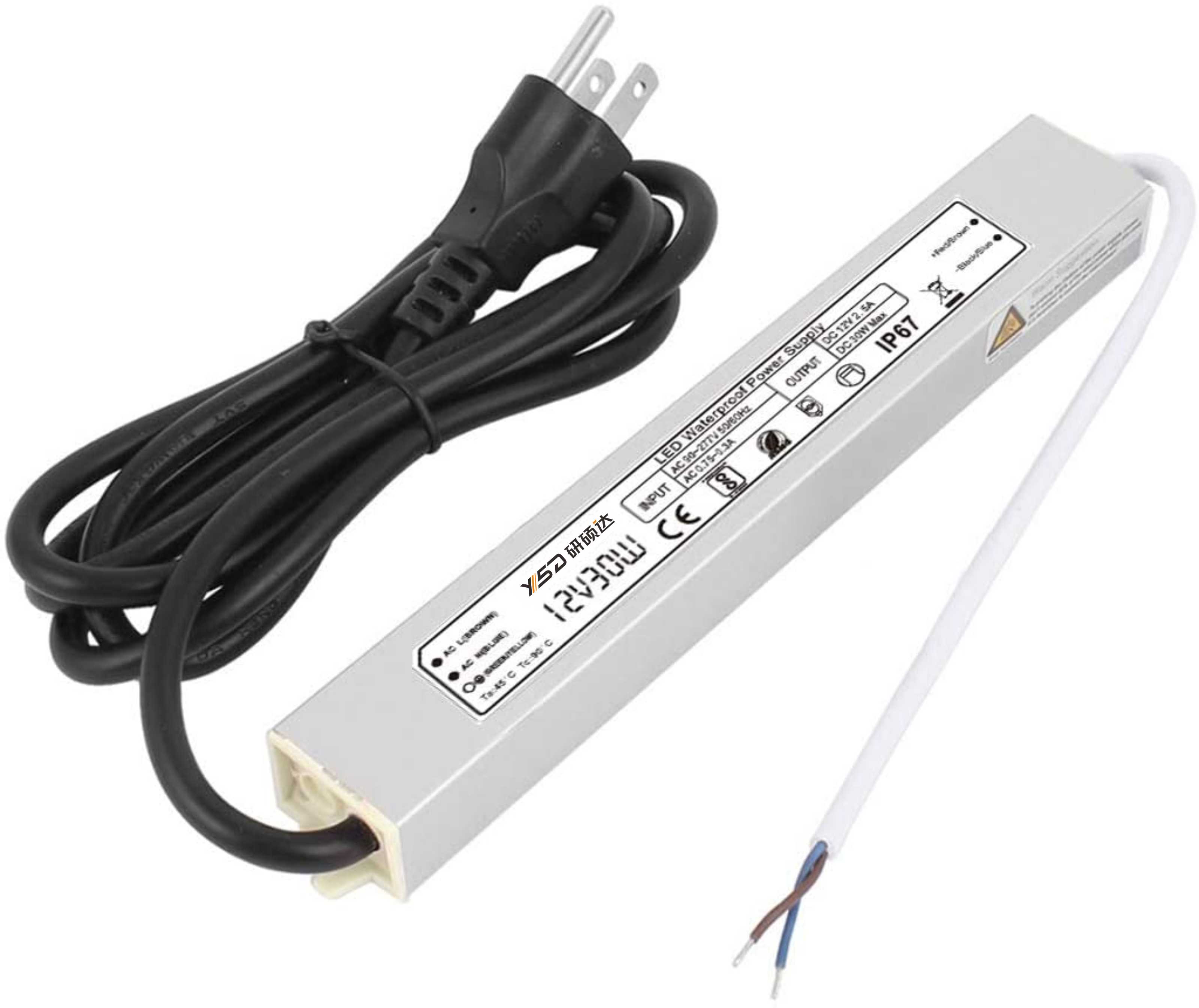Isolated power supply (ISO) and non-isolated power supply
Time:2021-03-24 / Read:1424At present, in the general LED drive power supply market, there is a distinction between non-isolated design and isolated drive power. Non-isolated design is limited to double insulation products. Secondary products are isolated and relatively expensive, but where users can access the LED and output wiring (usually in the case of LED lighting and street lighting applications), this This kind of product is essential.

Isolated power supply
Isolated power supply means that the input and output are electrically connected through magnetic components such as transformers. Even if the output is short-circuited, there will be no major problems. Non-isolated power input and output are electrically connected directly. If there is a risk of electric shock, the output voltage of the isolated power supply can be adjusted through a transformer. The isolated power supply uses a transformer to reduce the voltage of 220V through the transformer to a lower voltage, and then rectify it into a direct current output for power supply. Because the main coil of the transformer bears 220V voltage, the secondary coil only bears the output low AC voltage, and the primary and secondary coils are not directly connected, so it is called an isolated power supply.
Non-isolated power supply
The non-isolated power supply is directly input to the electronic circuit with 220V, and the output is stepped down through the electronic components. The input and output are directly connected through the electronic components, so it is called the non-isolated power supply. On the surface, the difference between the two is whether there is a transformer or not. The non-isolated LED design is limited to double insulation products, such as replacement products for light bulbs, where the LED and the entire product are integrated and sealed in non-conductive plastic, so the end user does not have any risk of electric shock. The secondary products are all isolated and relatively expensive.
The difference between isolated power supply and non-isolated power supply:
1. Voltage: Isolated power supply voltage range: 60-300V, non-isolated power supply voltage range: 110-300V.
2. Efficiency: The isolated drive is safe but low in efficiency, and the non-isolated drive is more efficient. (Isolation or non-isolation drive should be selected according to actual requirements)
3. Circuit structure: The current isolation schemes are mostly AC/DC flyback (Flyback) circuit schemes, so the circuit is relatively complex and costly. The non-isolated type basically adopts the DC/DC boost (Boost) or step-down (Buck) circuit scheme, the circuit is relatively simple, so the cost is relatively low.
4. Safety: The isolation power supply has an isolation transformer. The transformation process of the transformer is: electricity-magnetic-electricity, which is not connected to the earth, so there is no danger of electric shock. The non-isolated circuit is that the input power is directly added to the LED load after the step-down voltage is passed, and there is a danger of electric shock. Although the LED drive power supply without an isolation transformer can still achieve partial mechanical insulation with the help of a protective casing, the LED at this time cannot be directly contacted during operation. Therefore, the safety factor of isolation relative to non-isolation is much improved.
In short, isolated power converters prevent the isolation between input and output by electrically isolating the circuit and physically isolating the circuit into two parts, thereby preventing direct current from flowing between the input and output, which is usually achieved by using a transformer . A non-isolated power converter has a single circuit in which current can flow between input and output.
Application of isolated power supply and non-isolated power supply
Typical applications looking for isolated power supplies are those that must meet safety and system requirements. Generally, medical equipment needs to be isolated between input voltage and output, otherwise the load may be human. In contrast, certain applications require non-isolation due to the location where they are used, such as lighting, appliances, and sensors.
When choosing LED power supply, you can buy it according to your needs. If you don’t understand, you can consult us.Whatsapp:+86 13632807457/E-mail:brian@szyswps.com


